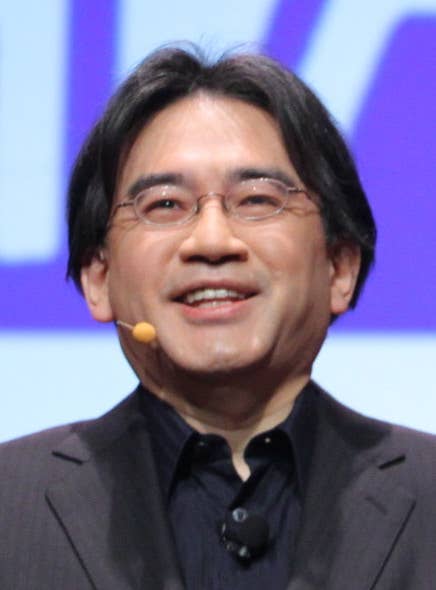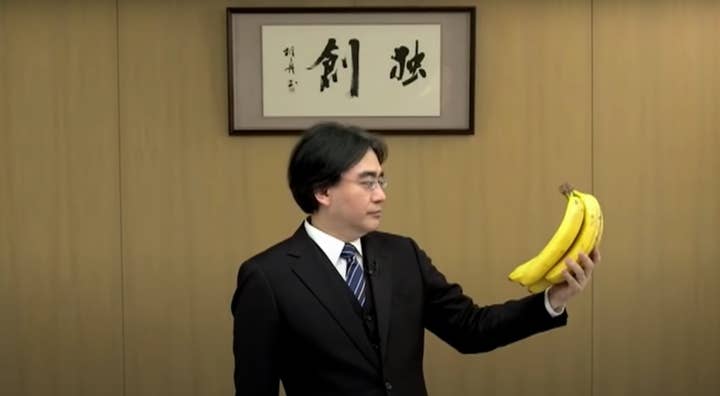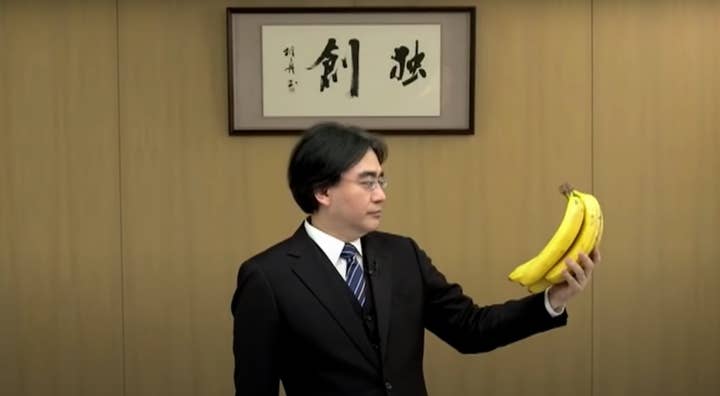Leadership lessons from Satoru Iwata
Five key tenets of Iwata's leadership style, as presented in "Iwata Asks"
"On my business card, I am a corporate president. In my mind, I am a game developer. But in my heart, I am a gamer." - Satoru Iwata
Satoru Iwata was the president and CEO of Nintendo for over a decade until his death in 2015. He took over the company when it was flagging and turned it back into a financially successful business. He oversaw the creation of two of the highest selling gaming consoles of all time, the Nintendo DS (154 million units sold) and Wii (101 million units sold).
Iwata was an innovative and risk-taking leader. He was a virtuoso programmer and had a storied history in game design, playing key roles in the development of classic titles such as Earthbound and Mario Kart. This meant that he managed in an unorthodox way, bringing a designer's eye to a job that is often focused on keeping investors happy. This helped him lead Nintendo to meet the imaginations and interests of gamers time and time again.
What follows are five key tenets of Iwata's leadership style, spoken in his own words. They are taken from a new book called "Iwata Asks" which features assorted reflections originally published on the website Hobo Nikkan Itoi Shinbun and the Nintendo website.
1. Have respect for others
Iwata believed that a leader should develop a close working relationship with their employees. This is essential in the creative industry in which companies are trying to achieve difficult tasks. As he put it: "The whole point of a company is for regular people, each with their distinctive characteristics, to join forces and accomplish giant tasks they could not undertake alone."
Iwata had a policy of interviewing each employee twice a year to figure out everybody's strengths and weaknesses
He showed this by refusing to order layoffs in times when the company struggled, explaining that holding job certainty over your staff halts creativity and productivity: "Nobody can really be asked to give it their all when they don't know if they'll have a job the next day."
When he was the president of HAL Laboratory, a game developer closely tied to Nintendo, Iwata had a policy of interviewing each employee twice a year. The process helped him to figure out everybody's strengths and weaknesses, which helps a leader to clarify priorities, and therefore increase efficiency: "When the whole group can earn praise without working insanely hard, things get better and better on their own, creating a virtuous cycle where the work only gets stronger. This means the group has tapped into their strengths."
2. Balance profit with innovation
Nintendo must balance turning a profit while simultaneously developing new technologies and software. As Iwata put it: "If a president says they'll revolutionize the industry, but for the next five years the company won't be able to turn a profit, they'll find themselves without a job. And so, every year, they need to generate a steady stream of profits, but also need to innovate. It's like flying along in an airplane and working on repairs mid-flight."

Iwata believed that the ability to predict future trends could be learned. He was influenced by a collaborator who had a knack for liking the things that catch on and become the next big hit. When Iwata asked him how he did this, he responded: "I don't predict the future. I simply notice the world starting to change a little before everybody else."
Iwata responded by methodically improving his predictive abilities.
"I started testing out different hypotheses about what could be popular, one after the other. Thanks to him, I think I'm far more capable than I was back then of sensing changes before other people have realized that they're happening."
3. Create a shared vision
Nintendo are always working on large hardware and software projects. Iwata learned that having a clearly defined outcome was essential, as was the case with the Wii.
"The Wii development team had been debating what kind of system the Wii should be since the earliest stages of the project. I think having a shared vision for the desired outcome is a major reason why the project was successful."
One indicator that a shared vision has been achieved is that people are more proactive about fixing problems.
"Once the whole team has a shared vision for the desired outcome, someone will be there to discover problems as they happen, or perhaps even before they happen, and attend to them organically. In that sense, making the Wii was an ideal experience, with people stepping up and saying, 'I see a problem here -- how about I fix it?' more often than for any system up until then."

4. Locate the bottlenecks
Projects often stall and become inefficient, especially when a company is creating a new product. Iwata believed the solution was to locate the bottlenecks, the areas with little wiggle room that limit the overall scope of the project.
Iwata put a high value on taking personal responsibility. Famously, he once slashed his pay by half following a 30% slump in profit
"If you want to make any big picture changes, the first thing you do is find the bottlenecks and fix them. You can fix as many of the looser areas as you like, but the general design will barely change. As a result, until you've cleared up all the bottlenecks, it's meaningless to try to speed up any other parts."
This can seem counter intuitive as people try to increase the workload to fix a struggling project.
"The trouble is that people feel better when they have their hands full, so until they find the bottlenecks, they tend to sweat over whatever issues they encounter. Before taking any action, you should identify the most problematic areas and figure out what you can do to fix them."
5. Take personal responsibility
Iwata put a high value on taking personal responsibility. Famously, he once slashed his pay by half following a 30% slump in profit. He put this attitude down to his background as a programmer.
"Since programming depends on pure, uncompromising logic, a single contradiction will prevent the system from functioning properly. Machines don't make mistakes. All mistakes result from external forces. And so, when a system isn't working, the fault is clearly your own."
He even had this attitude when communicating with staff.
"In communicating with others, if I fail to get my point across, rather than blaming the other person, I will instead consider where I may have been at fault. When communication isn't going well, blaming others never helps. Instead, I tell myself, 'They're not getting my message or seeing eye to eye with me because I'm not expressing myself as well as I could'."
